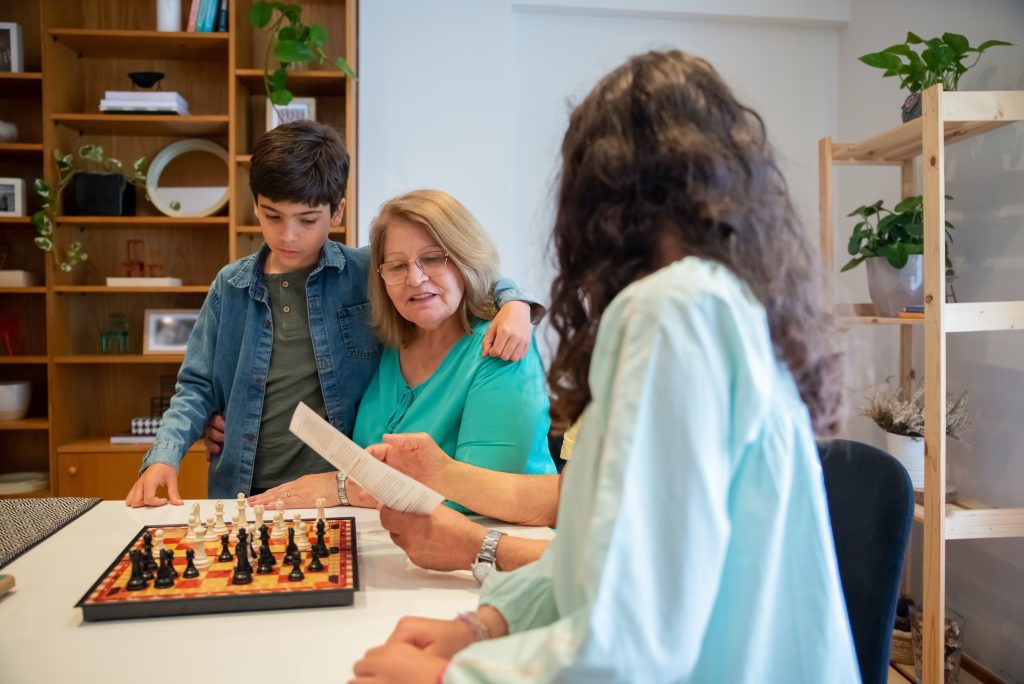Foster Care Fortnight: Clare’s story
To celebrate Foster Care Fortnight (Monday 15 May – Sunday 28 May 2023) and encourage more local people to join our foster care community, we’re highlighting the experiences of our very own foster carers.
Article credit: Shropshire Magazine
Having a supportive family and a safe and warm home is something many of us take for granted.
Every year thousands of children desperately need someone to care for them when they can’t live with their birth parents.
Foster carers carry out this vital role, providing them with love, understanding, and a secure place to call home for as long they need it.

Fostering
According to latest statistics from The Fostering Network more than 70,000 children live with almost 56,000 foster families across the UK each day.
They include babies and toddlers, children with special needs and brothers and sisters who need to stay together.
There are also teenagers and young mothers who need a little extra support before they make their own way in life.
Many will have experienced domestic crises. Most will be feeling bewildered and upset about moving in with strangers. So, it’s a foster carer’s responsibility to bring stability and continuity to these children’s lives while the difficulties are being sorted out.
In the vast majority of cases, children in foster care will have regular contact with their families, as fostering agencies recognise how important family time is for the children and their identity.
They will often continue to attend their old schools and maintain contact with their friends. The expectation is that most will hopefully return home to their families.
Making a difference to a child’s life through fostering is said to be one of the most fulfilling and rewarding experiences available.
Clare Pollard, who lives in Shrewsbury, has cared for dozens of children since she started fostering more than 20 years ago. She explained:-
“I was focused on my work as a buyer and I had a good social life but I always thought there was more I could do. I had got to a stage in life where I wanted to give something back.”
Over the years, Clare has provided a home for than 50 children who need short-term, long-term or emergency placements.
“I love to see the children thrive. I’m quite a nurturing person. I enjoy being part of a child’s journey and helping them to thrive.”

Fostering
Fostering has not only been a beneficial experience for Clare,who is carer for Shropshire Fostering, which is part of Shropshire Council, but also for her two teenage children.
“They enjoy it, if they didn’t I would stop. They feel it’s part of being in a big family. They enjoy welcoming the children. They make great friendships and they still have these friendships to this day.”
Clare is also a hub carer for the Mockingbird programme, which is delivered by The Fostering Network in partnership with 62 fostering services across the UK.
The programme aims to nurture the relationships between children, young people and foster families supporting them to build a resilient and caring community of six to 10 satellite families called a constellation.
As of January 2023, there were 117 Mockingbird constellations in England, Wales and Scotland with families attending social events, supporting each other and overcoming problems before they escalate.
Clare said:-
“Mockingbird started in America and the idea is that hub carers and foster families get together with everyone bringing their experience to the table.
“The hub carer is seen as the grandpa or grandma of the constellation and we providing a safe place for adults and children.
“Foster children making great friendships in a constellation, they realise they are not alone and there are other children like them in care.”
Shropshire Fostering is always on the lookout for foster carers from all walks of life. The number of children that need to be placed with a foster carer is increasing. In 2021, there were 435 children that needed to be fostered. By December 2022, this had increased to 536 children. (Currently, as of Tuesday 16 May 2023, the figure stands at 436 – Shropshire Council addition)
Foster carers don’t need to have children of their own and can be married, single or in a same sex relationship. They do need to fit certain criteria, such as having a spare room and being over 21 years old – but this can all be discussed when someone makes their first enquiry.
There are a range of options available, such as part-time fostering or becoming a respite foster carer, but more so long-term carers and also for a specialist fostering scheme called Stepping Stones.
There’s also a lot of support through various groups and training. Shropshire Fostering provides homes for hundreds of children across the county and gets to know each child really well, as the children in the care of the local council’s fostering service – of which Shropshire Fostering is the brand name, before placing them with well-matched foster parents where possible.
An excellent support package is available for foster carers which includes a 24/7 support line if they are in need of advice, as well as peer support and specific training. On top of that, Shropshire Fostering also organises social events, fun days and BBQs so that foster families can get together and be part of a fantastic community.
Foster carers are classed as self-employed and work for Shropshire Council by whom they are thoroughly assessed and properly supported. They are paid a continuous amount, whether they have a child in their care or not.
Knowing they will receive regular payments allows foster parents to relax and enjoy spending time with the children in their care.
To request an information pack go to www.shropshirefostering.co.uk/enquire or for a no-obligation chat call 0800 783 8798.

